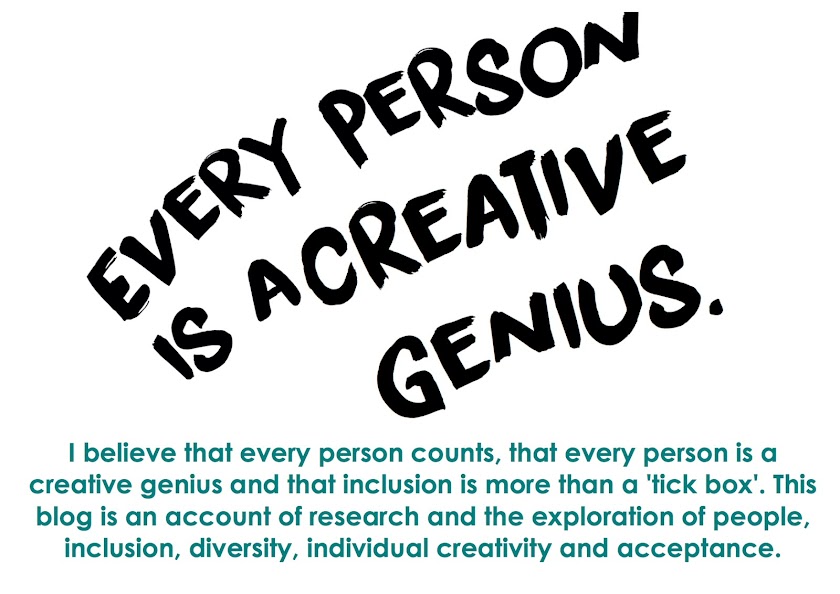Through
this research project, I set out to explore the approaches to, and the impact
of, inclusive arts practice at Epic Arts Cambodia. I did this through a
qualitative research approach in the form of interviews and activity
observations, which investigated
the perceptions, experiences and practices of activity participants,
facilitators and programme managers at Epic Arts Cambodia. From this I discover
the necessary ‘Attitudes’, ‘Actions and ‘Personal Skills’ that people at Epic
Arts believed to bring about
successful inclusive arts practice and what impact these necessary
attitudes and subsequent practices have on people who interact with the work
Epic Arts delivers.
I
presented the research process and results of this investigation publically to a
worldwide audience via this blog, which recorded my learning journey and the
understanding that I gained from interactions with people at Epic Arts. This blog focused on discovering what the necessary attitudes and resulting
practices were that people at Epic Arts believed brought about successful
inclusive art practice and the impact that is made, as well as my personal
learning and chosen processes.
After
analyzing the data collected and discovering the three main areas; ‘Attitudes’,
‘Actions’ and ‘Personal SkilIs’, I then worked with managers and staff at Epic
Arts to discuss the findings of this research and work to develop methods to communicate the key
findings of this investigation to support the sharing of experience, learning
and best practice in inclusive arts at Epic Arts and add to the dialogue of
inclusive arts practice. This took form in three different ways; firstly I
worked with Cambodian managers at Epic Arts to create a book that they
could understand and be able to share with others. At this point the book, ‘Inclusive Arts In
Action: An Exploration of Inclusive Arts Practices at Epic Arts. by Laura Evans’ exists in English (presented in my previous blog post). The book will soon be
translated to Khmer and from here, I hope to work in conjunction with staff at
Epic Arts to develop a training course that focuses on using creative practices
that can train people in Cambodia and further afield to work inclusively using
the arts.
The second method of communicating
key findings was to work with staff and students to create an ‘Inclusion Policy’
for Epic Arts. Through a discussion
with staff and students at Epic Arts using the research findings the, 'We are Epic…We are Inclusive – Inclusion
Policy’ was created. This policy was agreed upon by all staff and was implemented
in April 2015 and sets out clear guidelines of what Epic Arts stands for and
what it believes that staff should and most importantly should not do to
promote inclusive in the workplace. This is the policy;
The
third element that emerged as a method for communicating the findings of the
research was a Manifesto for Epic Arts. Managers felt that it was important to
use the research findings to create a clear statement about what Epic Arts
believed, that could guide the development of the organisation in the future. ‘The Epic Arts Manifesto’ was created in
April 2015 and will begin to be officially used by the organisation as of May
2015. This is the Epic Arts Manifesto;
Overall the research project
enabled the voices of the activity participants, facilitators and programme
managers at Epic Arts, Cambodia to be heard and this has produced a clearer
understanding of what the organisation is doing. I believe that the research has unearthed the values that form
the foundation of the work that Epic Arts undertakes. Even though these values
may not be followed at all times by all people, as an voice of the
organisation, the people at Epic Arts believe that these are the ‘Actions’,
‘Attitudes’ and ‘Personal Skills’ they should aim to cultivate through practice
as authentic human beings.
This research project created
new policy at Epic Arts and highlighted the need for Epic Arts to be able to
share lessons it has learnt in working inclusively through the arts with people
with and without disabilities in Cambodia. The results of this research project
can be used in the future to develop training in the discovered ‘Attitudes’, ‘Actions’
and ‘Personal Skills’ for inclusion that can be delivered nationally and
internationally by staff from Epic Arts, which can go some way to supporting
some of the guiding principals of the National Disability Strategy Plan 2014-2018
for Cambodia in particular;
1.a) - Respect for inherent dignity, individual autonomy including the
freedom to make one’s own choices, and independence of persons with
disabilities.
1.c) - Full and effective
participation and inclusion in society.
1.d) - Respect for difference and acceptance of
persons with disabilities as part of human diversity and humanity.
2.a) - Networking, collaboration
and participation among all stakeholders at different levels, which include;
international, national, municipal, provincial, district and commune.
In addition to supporting the
education of others, encouraging a change in attitudes and perceptions and the sharing
of best practice, I believed that the development of creative practice based training
activities linked to the book developed from these findings could provide
additional income for Epic Arts, which can generate sustainable income for the
organisation. As there is a
limited amount of information and research in to inclusive arts, I believe that
this investigation in to what Epic Arts is doing in Cambodia and the three
documents that this has produced for Epic Arts, has been of incredible benefit
to all participants involved, the Board of Trustees and the organisation as a
whole, as well as adding to the current discourse surrounding inclusive arts.










No comments:
Post a Comment